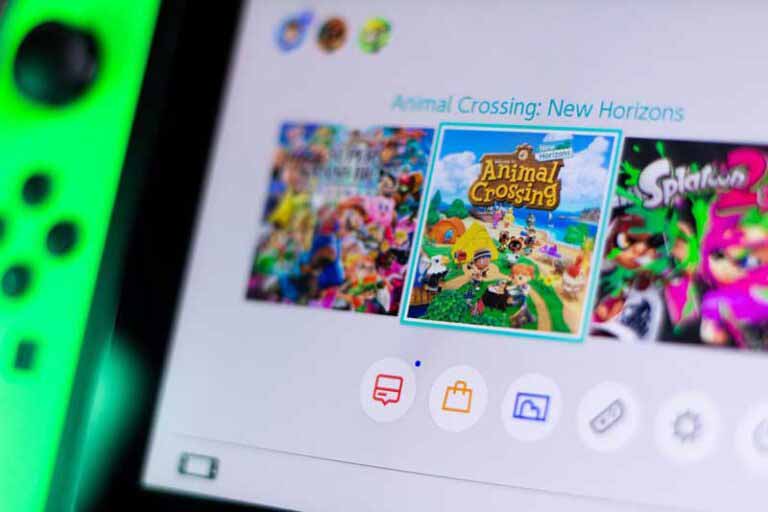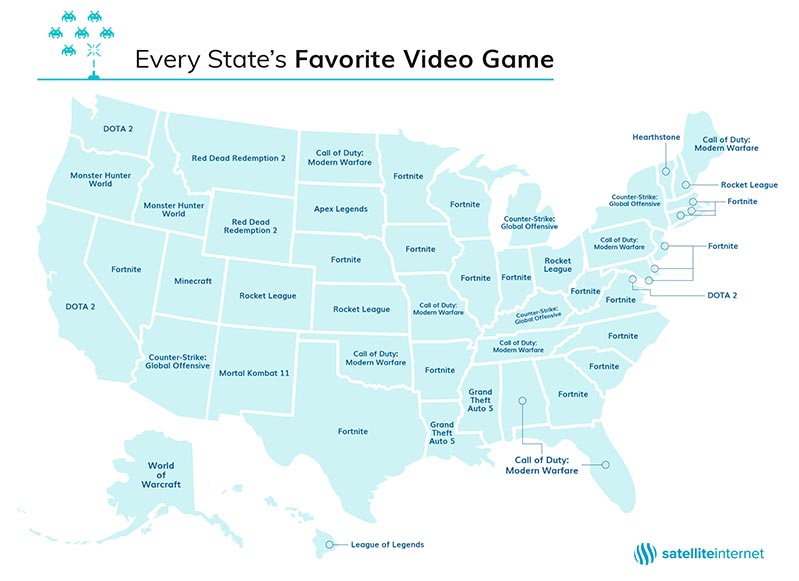The Federal Communications Commission (FCC) recommends speeds of at least 4 Mbps for gaming, but as with all things, more is better.
Luckily, both satellite internet providers in the US offer faster speeds than that. HughesNet connects you at 25 Mbps, no matter what plan you choose. Viasat internet (formerly Exede) goes up to 100 Mbps—a speed that rivals cable internet.
When it comes to data caps, both Viasat and HughesNet advertise “unlimited” data. But the reality is that both internet companies may slow your speed after you hit your data allotment each month. It’s not a hard data cap, so you can still keep using the internet after you hit your data allotment, but it can be frustratingly slow.
Viasat will slow your speed during times of high network traffic once you hit 40 to 100 GB of data. The amount of data you get before your internet starts crawling along depends on the plan you purchase—the more expensive the plan, the more unthrottled data you get.
HughesNet, on the other hand, caps your data at 10 GB to 50 GB each month. Again, the amount of data you get depends on which plan you pay for. If you go over that data cap, your speeds will slow to about 1 to 3 Mbps until the billing cycle ends.
But, that’s not exactly the whole picture. If you live in an area where satellite data is under-utilized, then there might not be much congestion and you might not experience slowed speeds. That’s one reason why satellite internet works better for some people than others—it’s sort of the luck of the draw. So, if your neighbors are complaining about their slow Viasat speeds, you’ll probably have the same issue with Viasat.
You can buy extra data from both Viasat and HughesNet, so if slow speeds will interfere with work or school, you can add extra full speed data to fix the issue.
We should also mention HughesNet’s two-year price lock guarantee is great if you’re looking to save money, especially compared to Viasat, which jacks up your price after three months. That might be enough to turn the tide in HughesNet’s favor.
You might be surprised to learn that gaming online doesn’t use much data. Playing online games uses only 34 MB of data per hour—which makes it a fairly low-data activity. Browsing the internet, for example, uses 184 MB per hour, and streaming video content in 4K uses a walloping 6.7 GB per hour.3 It would take you 197 hours of gaming to use up the same amount of data you’d use in streaming one hour of 4K video streaming.
But downloading games can really use a lot of data. Downloading the game Red Dead Redemption 2 will use 150 GB. Yikes! Games like Animal Crossing are a lot smaller (Animal Crossing is 6.2 GB), but if you’re gaming on a satellite connection that has 10 or 20 GB of data per month, it’s easy to see how downloading games will cost you.
On a satellite connection, downloading a couple of games could use up a month’s worth of data. Because downloading games eats up so much data, we always recommend buying a physical copy of a game if you can.
If you have multiple gamers in your household (or even if some housemates stream while you game), Viasat’s speeds may be a better deal. With its new Viasat-2 satellite system, it ramps up to 100 Mbps in some parts of the country, while HughesNet tops out at 25 Mbps. But, in some areas, Viasat speeds top out at 12 Mbps, so you’ll have to check availability to find out which company offers the fastest speeds in your area.
If it’s just you gaming, HughesNet’s 25 Mbps speeds are more than enough. And don’t forget about its two-year price guarantee that blows Viasat’s prices out of the water.
One thing to note is that your internet speed won’t affect your lag since latency is based on distance and not speed.
Even so, data caps and speed are still worth considering while you decide on a satellite internet plan. If you hit your data threshold, your internet speed will slow down enough that it’ll be too slow for gaming.
Here’s how internet speed affects your gaming. Imagine you ordered a chocolate shake, but there were no big straws, and you had to suck all that chocolatey goodness through a coffee stirrer-sized straw. Talk about frustrating.
That’s what internet is like with a lower speed—you’re trying to download information through a narrow straw. But if you up your speed, you’ve upgraded to the jumbo-sized milkshake straw that allows you to download more information at the same time.
Big or small, your straw is always the same length, so your milkshake (or internet data) always travels the same distance to get to you. That’s why latency is an inescapable factor with satellite internet, no matter how fast your connection is. But getting more data at once with a higher speed will help downloads go faster and graphics look better. That’s why speed still matters.




